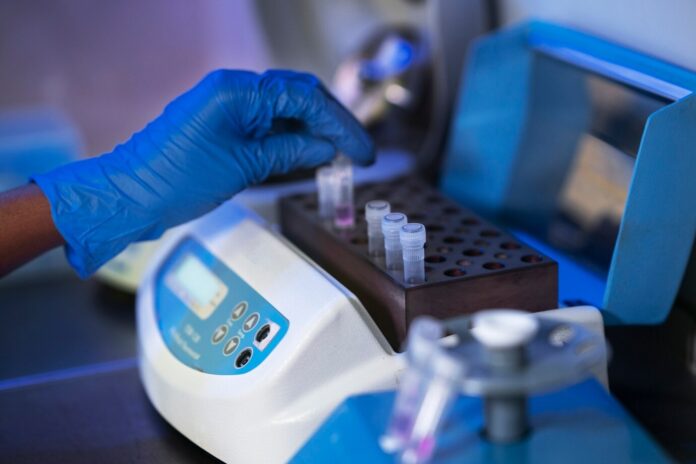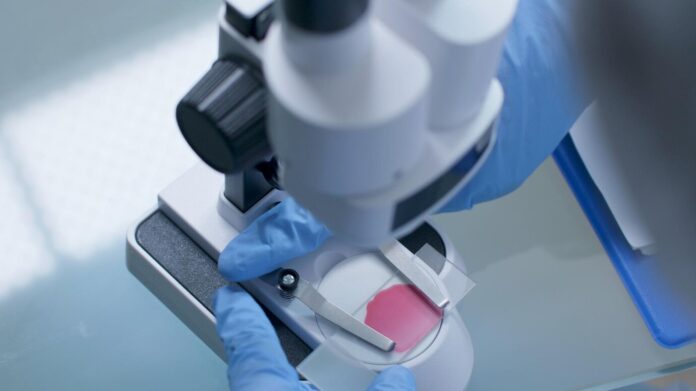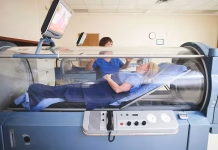The landscape of healthcare is evolving at an unprecedented pace, and one of the most significant advancements driving this change is the emergence of advanced biomarker detection. This innovative approach is transforming how we diagnose and understand diseases, offering critical insights that were once thought to be unattainable.
By focusing on biomarkers, which serve as biological indicators of disease presence and progression, healthcare professionals can now tailor treatments to your specific needs more effectively than ever before. This is not merely theory; it’s a practical change that is improving outcomes in fields such as oncology and chronic care management.
As you explore the vital role of biomarkers in disease diagnosis, you’ll discover how advanced technology in diagnostics can lead to not only earlier detection but also a deeper understanding of treatment efficacy.
The shift toward utilizing sophisticated medical technologies helps to bridge the existing gaps in healthcare disparities, ensuring that more patients can access these groundbreaking testing methods. Importantly, the advancements in biomarker detection are laying the groundwork for the next frontier in precision medicine, where your unique biological makeup can guide tailored therapeutic strategies.
In this article, you will uncover how advanced biomarker detection is changing disease diagnosis, highlighting the importance of these markers in identifying health conditions accurately, the technological innovations that make this possible, and how these developments are paving the way for a more personalized approach to healthcare.
Key Takeaways
- Advanced biomarker detection offers deeper insights into disease presence and progression.
- This technology significantly improves accuracy in diagnoses, particularly in oncology and chronic illnesses.
- Access to biomarker testing is expanding, addressing healthcare disparities.
- Technological innovations are pivotal in transforming diagnostics and treatment strategies.
- Precision medicine is emerging as a result of advanced biomarker detection.
- Your unique biological indicators can now guide tailored therapeutic approaches.
Understanding Biomarkers and Their Role in Disease Diagnosis

Biomarkers play a crucial role in the field of disease diagnosis and paved the way for advancements in molecular diagnostics. These biological indicators help identify the presence or progression of diseases, enhancing the accuracy of clinical assessments.
What Are Biomarkers?
Biomarkers can be defined as measurable substances in the body that indicate a biological condition. They include molecules found in blood, urine, or tissues, as well as genetic variations. These indicators provide essential insights into disease states and guide treatment decisions. For instance, certain biomarkers are pivotal in diagnosing conditions like cancer, where early detection can significantly impact patient outcomes.
The Importance of Biomarker Detection
Understanding the importance of biomarker detection is vital for improving disease diagnosis. The ability to identify specific biomarkers allows healthcare providers to personalize treatment strategies and monitor disease progression effectively. Here are some key points highlighting their significance:
- Enhancements in the accuracy of disease diagnosis.
- Facilitation of early intervention and treatment.
- Assistance in the monitoring of therapeutic responses.
- Support for research and discovery of new treatment modalities.
With ongoing advancements in molecular diagnostics, the scope and application of biomarker detection continue to evolve, promising great potential for future healthcare developments.
| Type of Biomarker | Example | Associated Disease |
| Genetic Markers | BRCA1/BRCA2 | Breast and Ovarian Cancer |
| Protein Markers | PSA (Prostate-Specific Antigen) | Prostate Cancer |
| Metabolic Markers | HbA1c | Diabetes |
| Imaging Biomarkers | FDG-PET Scan | Various Cancers |
How Advanced Biomarker Detection Is Changing Disease Diagnosis

Advanced biomarker detection plays a crucial role in reshaping disease diagnosis through innovative technologies. As researchers uncover new methods, healthcare innovation continues to revolutionize your understanding of disease mechanisms and treatments.
Technological Innovations in Biomarker Detection
Recent advancements in technical approaches have led to significant improvements in biomarker detection. Microfluidics and liquid biopsy represent cutting-edge techniques facilitating real-time analysis. These innovative methods provide enhanced sensitivity and specificity, making early disease detection more accurate. Additionally, technologies such as those offered by https://sentechmedical.com/.
Precision Medicine: A New Frontier in Healthcare
Precision medicine embodies a transformative approach in healthcare systems, tailoring medical treatments to individual characteristics. By utilizing advanced technology in diagnostics, precision medicine ensures that therapies are more effective, leading to better patient outcomes. This tailored strategy illustrates a shift towards personalized healthcare, making it a focal point of contemporary medical practice.
Conclusion
In summary, advanced biomarker detection is revolutionizing the landscape of disease diagnosis, standing at the cutting edge of healthcare innovation. The integration of sophisticated technologies has led to more accurate diagnostic processes and the emergence of precision medicine, allowing for tailor-made therapies that significantly improve patient outcomes.
As these methods continue to evolve, it is crucial to prioritize expanding access to biomarker testing globally. This ensures that diverse populations can benefit from how advanced biomarker detection is changing disease diagnosis, ultimately addressing and reducing existing healthcare disparities.
Embracing these innovations will not only pave the way for more effective and targeted treatments across various medical fields, but it will also contribute to a future where every individual has the opportunity to receive the most appropriate care possible.

FAQ
What are the primary types of biomarkers used in disease diagnosis?
The primary types of biomarkers include genetic variations, proteins, hormones, and metabolites found in blood, tissues, and other body fluids. These indicators are critical for assessing disease presence, progression, and treatment efficacy.
How does advanced biomarker detection improve disease diagnosis?
Advanced biomarker detection enhances disease diagnosis by utilizing cutting-edge medical technologies that provide more accurate and sensitive results. This allows healthcare providers to identify diseases earlier and monitor treatment responses more effectively.
What role does precision medicine play in biomarker detection?
Precision medicine utilizes insights from biomarker detection to tailor therapeutic strategies to individual patients. By understanding the unique biological makeup of each patient, healthcare providers can offer more effective and personalized treatments, leading to better outcomes.







